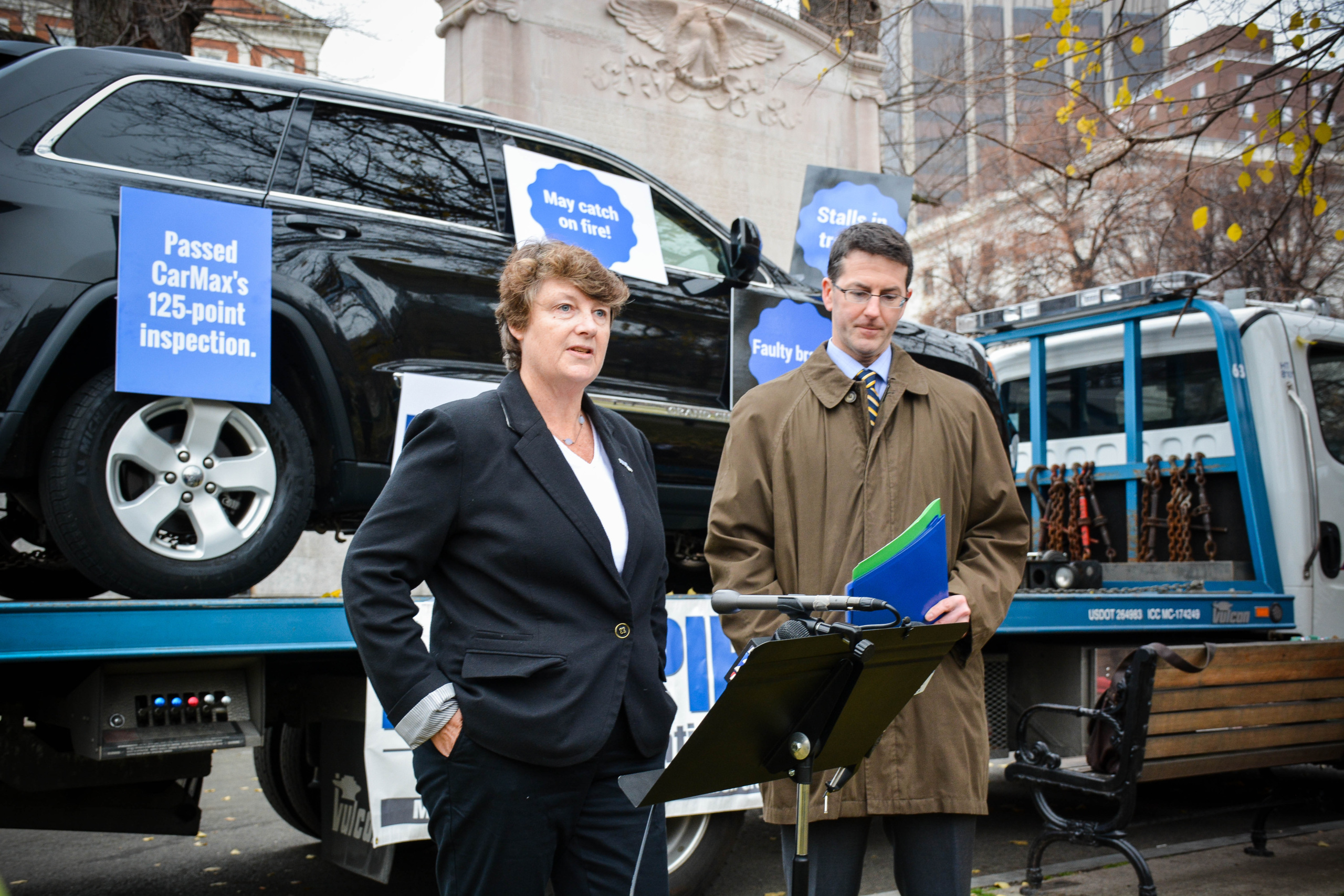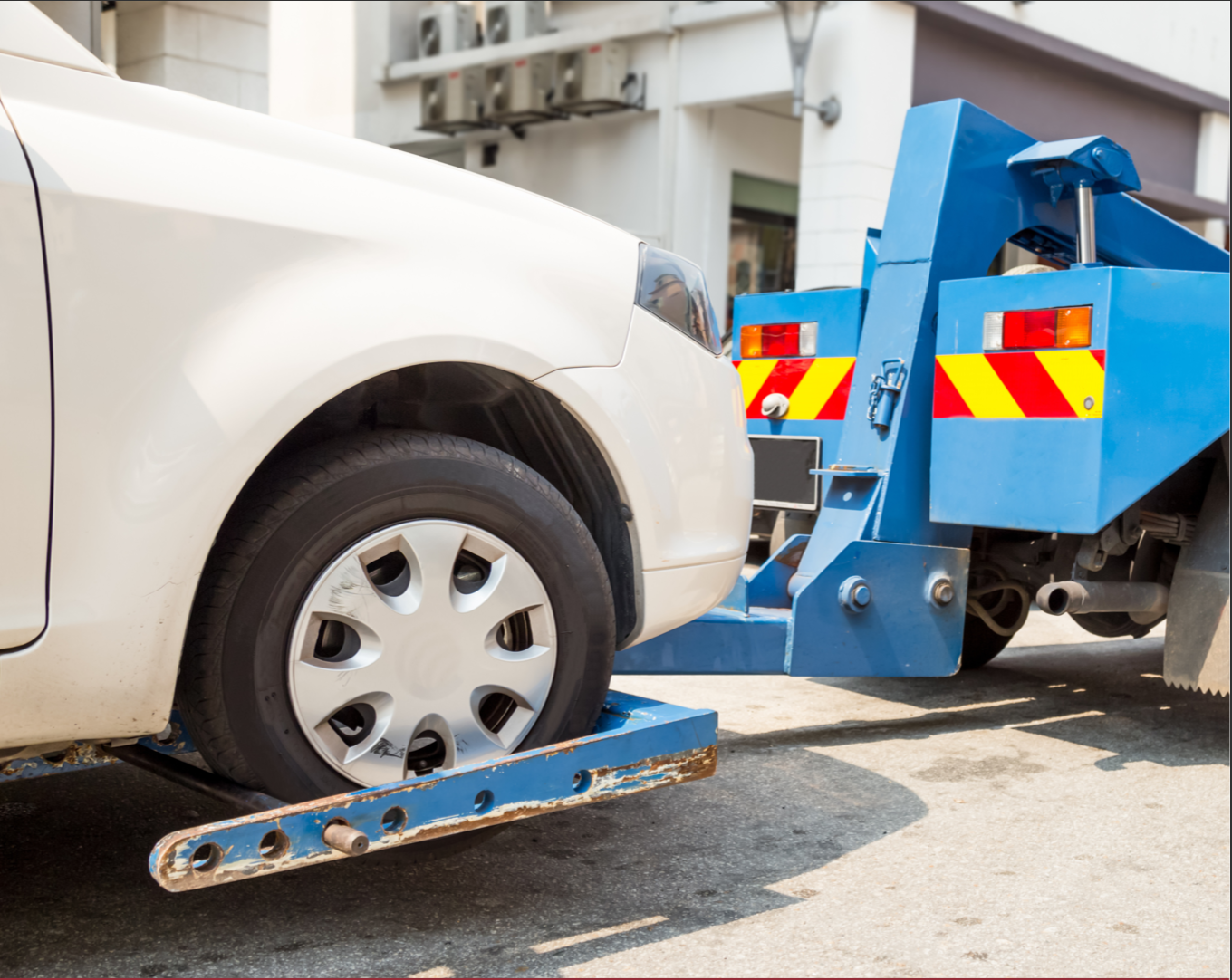
Boston city councilors file bill establishing a consumer towing bill of rights
Boston City Councilors Liz Breadon and Lydia Edwards have filed legislation to modernize and reform involuntary private vehicle towing and relocation practices in Boston. The proposed ordinance would establish standards for private towing companies, bringing into line practices of some companies that vehicle owners, public agencies, and consumer watchdogs have viewed as manipulative and predatory.

Great news – following the release of our report, Getting of the Hook, of a Predatory Tow, Boston City Councliors Liz Breadon and Lydia Edwards filed legislation to modernize and reform involuntary private vehicle towing and relocation practices in Boston.
Every year, millions of Americans have their cars towed without their consent from a private property or public street. Too often, the unknown rationale behind these tows and what to do next can leave drivers stranded and confused. While getting towed is a justified consequence of parking in the wrong place or for too long, most states don’t offer drivers the decency of basic consumer protections such as access to their wallets or medicine, or maximum rates for towing and storage. And that doesn’t even take into consideration those times when drivers believe they’re towed improperly.
It seems like everyone has a story of a run-in with a tow truck. When your car gets towed, everything else grinds to halt. Not only have you lost your primary mode of transportation, but you’re also trying to locate your vehicle and you’re worrying about mounting daily storage fees. It’s essential to know whether you’re being treated fairly or whether the tow company is acting in a predatory fashion.
“I had to locate my car, take an Uber to the tow lot which wasn’t in the safest part of town, and then had to pay cash to get my car back. Who carries cash these days anyway?” said Arya Mekkat, a Boston resident who had her car towed from the South End last year. “I was told I was towed because I parked in a construction zone, but there were no signs or cones displaying construction or no parking. The police told me that someone probably moved the cones. I would not have parked there had it been marked. This was so maddening and unfair.”
MASSPIRG Education Fund identified 14 common sense towing protections that should be available to consumers in every state. Our report, Getting Off The Hook of a Predatory Tow, outlines protections ranging from who is responsible for damages caused by careless towing, to the maximum rates and fees owed when towed, to whether you are guaranteed the option to pay by credit card. Massachusetts only provided 6 of the 14 common sense towing protections that should be available to consumers.
The proposed city of Boston ordinance would establish standards for private towing companies, bringing into line practices of some companies that vehicle owners, public agencies, and consumer watchdogs have viewed as manipulative and predatory.
The proposal, Ordinance Regulating Predatory Towing Practices and Establishing a Towing Bill of Rights (Docket #0901) was introduced by Councilors Breadon and Edwards at the Boston City Council meeting on Wednesday, August 18, 2021.
Standards established by the ordinance include mandating that towing companies publish and display their rates, accept payment via credit card as opposed to solely cash, requiring a photograph of the vehicle’s parked position before towing, providing itemized bills detailing charges, and reimbursement for damages related to towing or storage. The legislation also prohibits tow operators from cruising or surveilling private property without cause, as an involuntary tow must first be initiated by a request from a private property owner.
Under the ordinance, the Boston Transportation Department would be tasked with proposing guidelines for “No Parking” signs for private property owners to provide sufficient notice of enforced towing. The department would publish and distribute a Boston Towing Bill of Rights to inform consumers of their rights when their vehicle is towed, how to recognize predatory towing practices and an unlawful tow, provide details on how to retrieve their vehicle, and how to file a complaint of an unlawful practice. An annual report would be submitted to the City Clerk summarizing the financial statements of tow companies as reported to and regulated by the Massachusetts Department of Public Utilities Transportation Oversight Division.
The ordinance follows the recommendations outlined in our May 2021 report “Getting Off the Hook of a Predatory Tow in Massachusetts.” The report identified existing protections in Massachusetts, including a maximum tow rate of $108, maximum storage rates of $35 per 24-hour period, notification of the tow company to law enforcement of an involuntary tow, release of a vehicle for an incomplete tow at a “drop fee” no greater than half the towing cost, and reimbursement for an unauthorized tow.
“Losing a vehicle, even temporarily, can have profound impacts on an individual and their family’s livelihood and economic stability,” said District 9 City Councilor Liz Breadon. “People who rely on their cars may lose access to work, education, healthcare, and social services due to an unexpected tow. We certainly need to get more cars off our streets and prioritize affordable, reliable, and accessible public transit and safer biking, but for working-class residents who have had to move further from accessible transit, having a vehicle could be their lifeline. We absolutely must strengthen our regulations to reign in predatory practices of bad actors in the towing industry.”
“Tow operators who cruise or hunt for cars to tow, without cause or first receiving a request from the owner or business, is just plain wrong and unethical,” said District 1 City Councilor Lydia Edwards. “Now is the time to outlaw predatory towing, when families can ill afford to be without their vehicle. These are common sense updates that would help fight back against an industry that is often seen as manipulative and unfair.”
When passed, these new towing rules are important consumer protections for Boston residents and those who work in and visit the City. Under the best circumstances, getting towed is an ordeal, even when justified. For many drivers, however, the situation is compounded because the current consumer protections are weak and outdated. Preventing tow companies from only taking cash, requiring better disclosure of rates and itemized bills, requiring a photograph of the car before a tow, and preventing the practice of predatory towing are common sense yet critical consumer protections.
Topics
Find Out More


Apple AirPods are designed to die: Here’s what you should know

New report reveals widespread presence of plastic chemicals in our food

